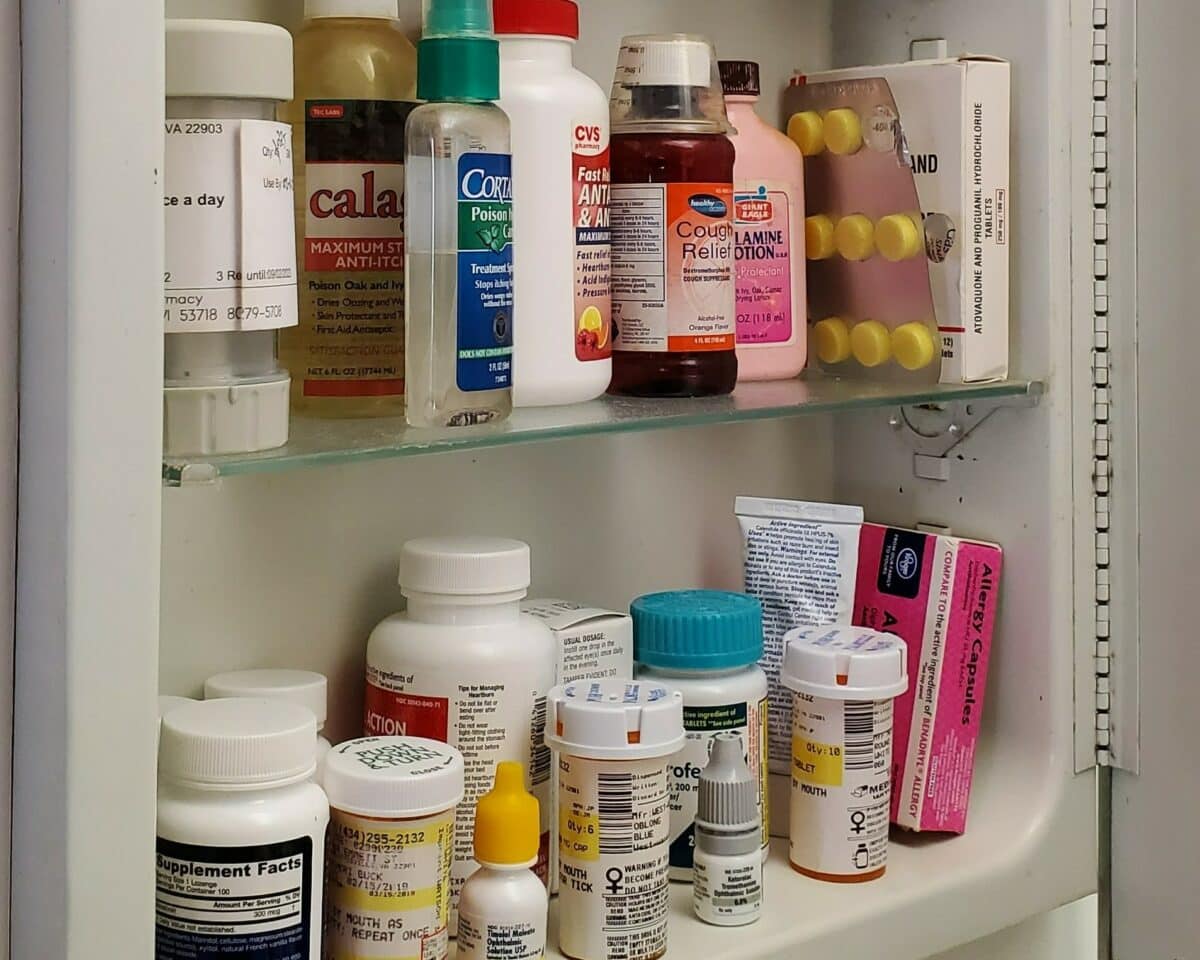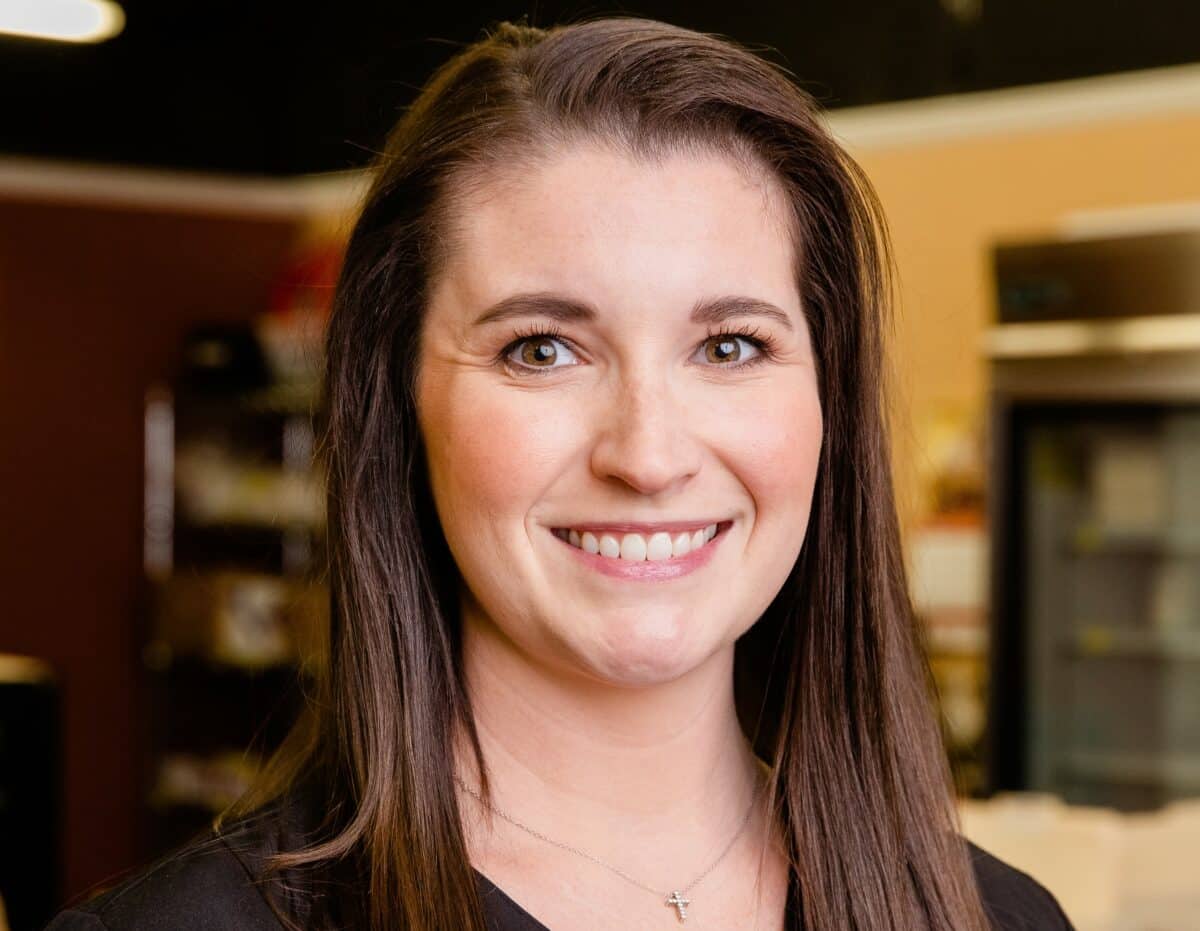Have you checked your medicine cabinet recently? I was cleaning things out the other day and was stunned to see the shelves behind my bathroom mirror were crowded with bottles I hadn’t touched in years. There were antibiotics I didn’t finish because I had an allergic reaction, an unfinished nausea prescription from the time I had the flu, and pain meds from surgery a while ago. I even had a bottle of ibuprofen from before my mother passed away five years ago.
“Having a shelf full of old or expired medications in the home can be a significant safety risk to family, friends, or even pets,” says CSI Pharmacy Vice President of Clinical Services, Barry Buls, PharmD.
People often forget why those medications were originally prescribed, or they simply grab the wrong bottle, which could be dangerous. Medications prescribed for one person may make another member of the family severely ill. The powerful pain meds prescribed for cancer patients, for example, could send another person to the hospital or even cause their death. That’s why Barry recommends that each member of the household store their medications in a separate space.
CSI Pharmacy’s Chief Pharmacy Officer, Jack Lemley, PharmD, reminds us that hanging onto those old narcotics that were prescribed after surgery can cause curious kids to get hooked on opioids. And while most medications lose effectiveness over time, some, like that tetracycline in the medicine cabinet, may become harmful if taken past the expiration date.
“It’s just safer to keep only the medications that are on your current medication list in your home and in a safe place and out of the reach of children,” Barry says.
Getting rid of unwanted medications, however, is not as straightforward as dropping them into the trash. At one time, people were advised to flush old or unused medications down the sink or toilet. Now we know it can be harmful to the environment and even human health when pharmaceuticals end up in our waterways. They can even show up in our drinking water, because most wastewater treatment facilities are not equipped to remove these chemical substances.
So how can we safely get rid of unused or expired meds?
Take Back Programs
The best way to dispose of unwanted prescription or over-the-counter drugs is through a “Take Back” event or at a special drop-off site. Every year, the US Drug Enforcement Agency (DEA) sponsors National Prescription Drug Take Back events. At these times, public safety agencies across the country are available to collect tablets, capsules, patches, and other forms of prescription and over-the-counter drugs, which are then disposed of safely. Medications are accepted anonymously, and the program is free.
Throughout the rest of the year, unneeded medications can be dropped off at special disposal locations, including pharmacies, hospitals, and businesses. Many local police or fire departments also provide year-round drop boxes. Your pharmacy may even offer an on-site drop-off box, mail-back program, or other ways to safely dispose of unused meds.
Home Disposal
If you are unable to get to a Take Back event or drop-off location, many drugs can safely be disposed of at home. These include prescription and over-the-counter (OTC) pills, liquids, drops, patches, and creams. The US Food and Drug Administration (FDA) provides guidelines for how to so this:
- Remove the drugs from their original containers and mix them with something undesirable, like used coffee grounds, dirt, or cat litter. This makes the medicine less appealing to children and pets and unrecognizable to someone who might intentionally go through the trash looking for drugs.
- Put the mixture in something you can close (a re-sealable zipper storage bag, empty can, or other container) to prevent the drug from leaking or spilling out.
- Throw the container in the garbage.
- Before throwing away the packaging, scratch out all your personal information on the empty package to protect your identity and privacy.
Special Considerations
Some products, however, require special handling.
Inhaled medications, for example, used for asthma and other breathing conditions, come in aerosol containers that can be dangerous if punctured or thrown into a fire or incinerator. To properly dispose of these containers, whether they are left over, expired, or used up, the FDA recommends contacting your trash facility. These metal canisters should not be recycled.
Similarly, fentanyl patches, used for long-term pain management, require special handling. Even after one of these adhesive skin patches is used, a lot of this high-dose medication can remain. This can be especially dangerous if someone for whom this drug is not prescribed, especially children, touches the patch for even a short time. Fentanyl patches are one exception to the advice against flushing meds. In fact, the FDA specifically recommends promptly disposing of used fentanyl patches by folding them in half with the sticky sides together, then flushing them down a toilet.
The FDA highlights other exceptions to the no-flush rule for medications that have similar safety concerns. Their Flush List includes drugs such as those that are highly sought after for misuse and/or abuse and those that can cause death from even one dose if used inappropriately. They recommend checking the medication label or their online Flush List to see if this form of disposal is recommended.
The FDA acknowledges the environmental concerns about disposing of these and all medications through the sanitation system. The agency recommends flushing for these specific medications only as a last resort. And their 2017 study of the risks posed by such disposal shows there is negligible toxicity to the environment and human health.
Remember, do not flush your medicine unless it is on the Flush List.











